
WABO PRESIDENT’S REPORT - by Andy Higgins, MCP, CBO, ACO
As the end of 2022 approaches and the holiday season is upon us, it is time to reflect and give thanks for another very productive and effective year for WABO. The strength of this organization is engrained by the participation and involvement of its membership, and it is evident that the level of influence and leadership that WABO is developing is continuing to grow significantly. WABO members have been very busy and have accomplished a great deal this past year… and for that you should ALL be proud!
WABO, and Region II as a whole, had significant in-person participation in this year’s ICC Annual Business Meeting and Public Comment Hearings held in Louisville, KY September 11th – 18th.
Results relative to the Group B code change proposals of interest:
- Of the high-priority items: a 77% success rate
- Overall (including medium and low priority items): a 76% success rate
- Adding the OGCV results to the TCD items on the consent agenda (i.e., not on the OGCV ballot): an 80% success rate
Bottom line, WABO Technical Code Development (TCD), chaired by Micah Chappell, did extremely well in this cycle. Thanks for all the work each of you added to this accomplishment!
Our Fall Business Meeting held in Spokane at the Historic Davenport Hotel on October 27th & 28th was very well attended with approximately 76 participants in total including 16 newcomers who were attending for their very first WABO Quarterly Business Meeting. This could not have happened if it weren’t for the diligent efforts of our Outreach Committee, chaired by Stacy Criswell, reaching a long list of jurisdictions throughout Washington State through a high quality invitation letter outlining all the great benefits of participating in WABO events and committees… justifying for many a significant return on investment, of both dollars and time!
I want to thank all our active members for all that you do on our committees, as well as your participation during our business meetings. Without your support and hard work WABO could not be the great organization that it is today. For those of you reading this that have not yet fully engaged in the work of WABO, I encourage you to take that first step. If you are looking to sharpen or develop your leadership skills, code knowledge, or just want to make a difference in an area that you are passionate about, I challenge you to contact myself or any of our E-Board members to help get you involved where you can contribute. It is both rewarding and fulfilling!
Our Winter Committee meeting will be held virtually (Zoom) on Thursday, February 2nd, 2023. This meeting will be an overview of the 2023 legislative session, and we will go over the WABO legislative talking points in preparation for all the WABO members that have volunteered to meet their district legislators virtually, scheduled for the week of February 6th – 10th. In the past few years these virtual meetings have been very successful, and we’ve had greater attendance and the undivided attention from more of our legislators than we ever had trying to meet in-person on the hill. If you are interested in attending these virtual meetings with your state representatives and are not currently part of the government relations committee, please email Tara at the WABO office ([email protected]) so she can add you to the distribution list.
Happy Holidays Everyone! ~ Andy
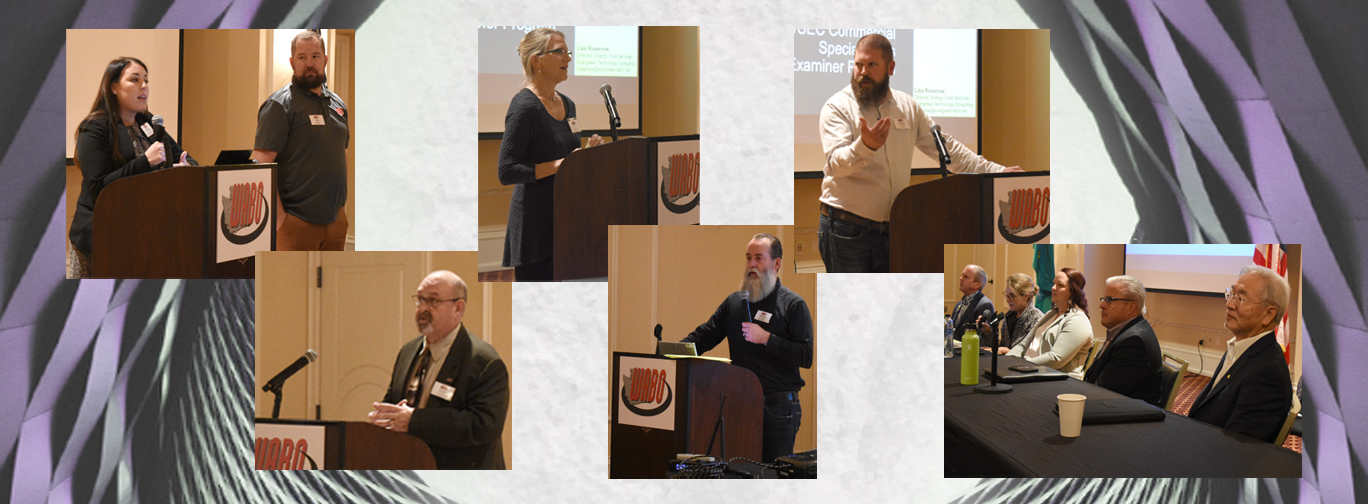
Committee Reports
Technical Code Development Committee - Chair Micah Chappell, MBA, CBO
Technical Code Development Committee (TCD) discussed the State Group 2 proposals and the upcoming SBCC votes for adoption of those changes. Please visit the SBCC website to view the meeting dates and try to attend to provide input on the adoption.
TCD provided more information on our public comment on the WUIC and how it outlines finding of fact when the determination of the WA DNR map is in dispute or when a project is proposed in an area that is not mapped as having structures. We are also continuing the work to modify the legislation that has provided previous guidance on the Wildland Urban Interface.
Lastly, TCD discussed a proposed emergency rule submitted by the Department of Health, to remove the strikeout of R-4 occupancies and allow there use again within the State. This was accompanied by a request for opinion on if a Building Official could allow an R-4 Occupancy as an alternative method to an I-occupancy.
As always, we encourage WABO members to get involved with TCD to provide continued improvement to our State and National Codes.
Emergency Management Committee - Chair Ryan Mumma, CBO, ACO
The Emergency Management Committee met on October 27th during the Fall Business Meeting in Spokane. The main topics of discussion were as follows:
EMAC Oct 6 Meeting:
Quyen Thai provided an update from the Emergency Management Advisory Committee (EMAC) regarding the county’s plans to apply for FEMA Integrated Emergency Management Course (IEMC). KCOEM will be submitting an application for IEMC on behalf of the region. A decision is not expected until May or June of 2023, while the exercise itself would take place in mid to late 2024. The exercise would be developed from a scenario designed by KCOEM with input from regional partners. Quyen asked if other jurisdictions should also submit applications for the exercise and also asked for clarification on who will be invited to participate under the KCOEM application (specifically, others outside of King County). KCEOM clarified that it is a regional exercise with a competitive application process, and while other entities are welcome to put in their own application, it makes the pool more competitive. If King County partners would like to write letters of support for the KCOEM application that would be encouraged. KCOEM agreed to provide templates for letters of support as requested. If awarded, King County partners will be invited to attend. KCOEM is open to further discussion if there are requests to include agencies beyond the jurisdiction borders.
WASafe:
Jon Sui provided an update on the status of the WASafe volunteer responder program. WASafe is currently working to finalize a refresher course all current WASafe volunteers who need to renew their expiring certifications. The training will be virtual and those registered on WAServ should receive a notification and instructions on how to access the training platform through Canvas. WASafe is also working out the final details of the renewal process and exploring grant opportunities to cover the administrative costs associated with renewal. WASafe and WABO are encouraging more jurisdictions and agencies to promote registration among their employees and members. In particular, more support from the east side of the State is desperately needed. Any jurisdiction can coordinate with WASafe to request a trainer to certify their staff. People who are currently certified in other emergency response programs, such as ATC 20/45 or CAL OES, are eligible for immediate certification in the WASafe program. Additional training opportunities will be available in Jan-Mar 2023 for those needing certification. For more information or to register as a volunteer please visit the WABO Emergency Management webpage or go to https://www.wabo.org/emergency-responders-wasafe
WA EMD URM Main Street Program:
Ryan Mumma provided an update on the “Main Street” program that the Washington State Emergency Management Dept is working on, in collaboration with the WA Trust for Historic Preservation. The goal of the program is to gather data on Unreinforced Masonry Buildings (URM’s) to further develop a map-based inventory of these buildings for end users such as code professionals, building designers, or emergency management coordinators. The map could offer several benefits like developing response & recovery plans, creating retrofit programs, or educating emergency responders on the possible hazards of specific buildings. The program will start with a pilot study of one community (TBD) using trained volunteers to conduct sidewalk surveys of known or suspected URM’s. The volunteers will evaluate buildings and capture the data through electronic forms on mobile devices, or printed materials which are then later entered into the electronic database. WABO committee members are currently working with the program to finalize the survey forms and training materials. The program’s goal is to have the training and survey materials complete in the next few months and have the pilot city selected so the survey can begin in the early part of 2023.
Government Relations - Chair Tim Woodard
The Government Relations committee (GRC) met at the Fall 2022 Business Meeting and many topics were discussed.
- Strategies for the upcoming 2023 session.
- The GRC debated our Legislative Talking points and ultimately ratified the talking points including adding additional talking points in regard to building permit efficiency and code language in RCW.
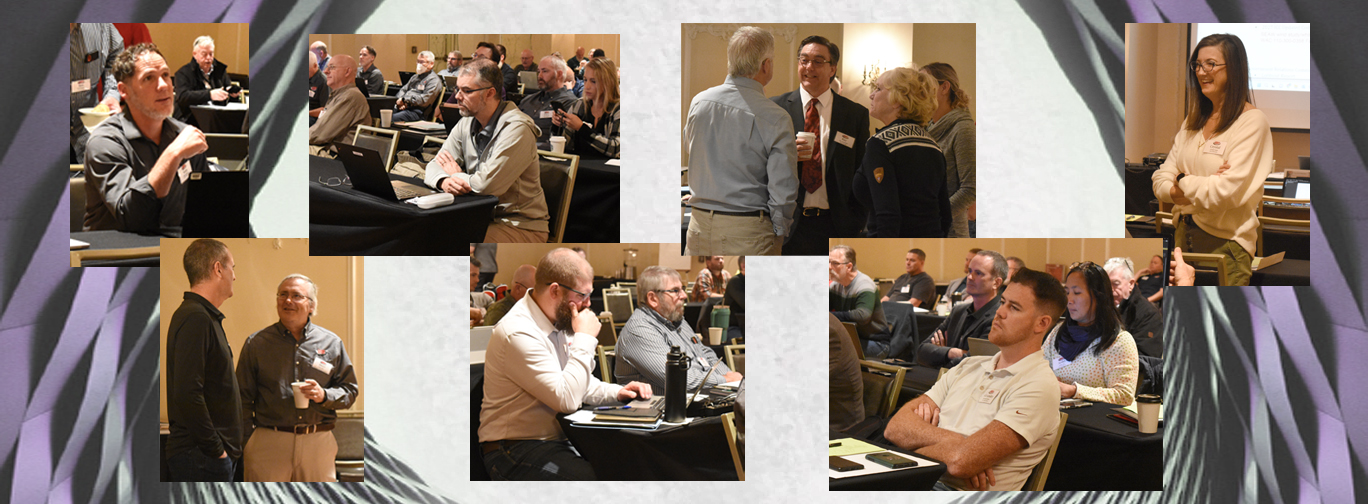
C & R Committee - Chair Brian Smith, CBO, ACO
During the fall business meeting Lisa Rosenow from Evergreen Technology Consulting (ETC) and C & R Chair Brian Smith gave an update to the commercial energy code plans examiner certification program. Lisa discussed the overall big picture of what the program should entail, and Brian talked about WABO’s role in funding only the certification exam development and administration portion of it. All training and material development and ownership would be by other organizations than WABO, which will significantly reduce the cost that was discussed during the summer quarterly meeting in Bremerton.
Education Committee - Chair Max Booth
As a brand new chair of the education committee, I don’t have a lot to report, however, here are the highlights from our recent committee meeting at the Fall QBM. We finalized ideas for the 2023 AEI, and since then Tara is working hard to get all of our instructors under contract. We will be distributing the Annual Education Institute Brochures the first week of January (barring any supply chain issues). As time goes on, we will be working with local ICC chapters to coordinate training that is closer to home. Our goal will be to support and work with local chapters to assist them in providing training to their local jurisdictions. As always, if you have any ideas or needs for continuing education and training, please don’t hesitate to reach out and share them with me. Thank you!
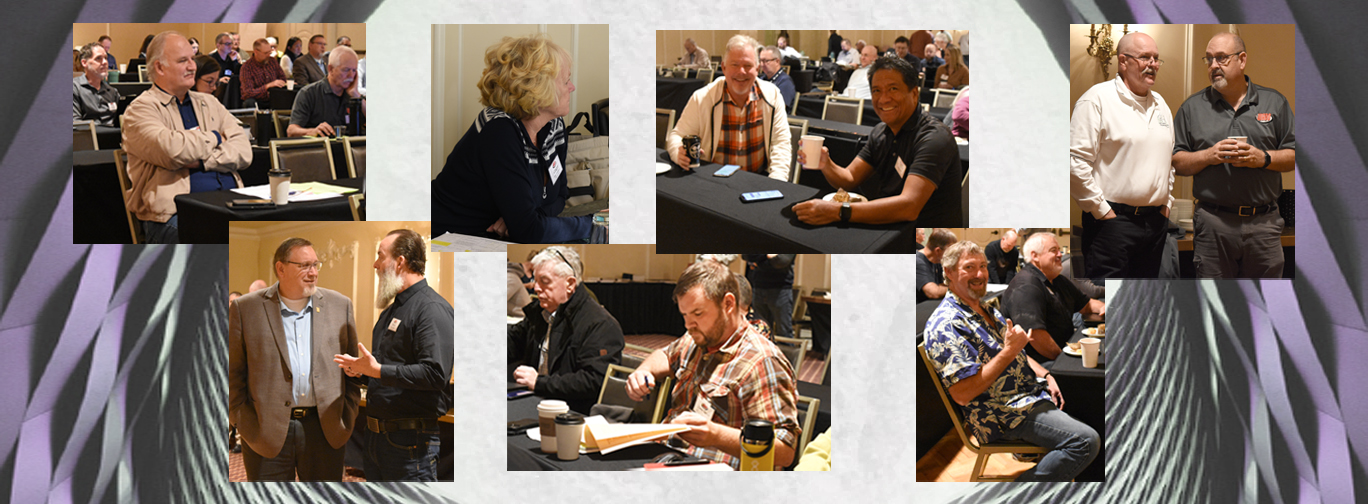
Outreach Committee - Chair Stacy Criswell, CBO, ACO
WABO’s Fall Business Meeting was a great success. We had 16 first time members show up to our event and made some great connections. If you have yet to take advantage of one of our business meetings, I encourage you to get involved to expand your network. Lastly, please check out or website at wabo.org for great information, helpful handouts, tip sheets and even scholarship opportunities.
Accreditation Committee - Chair James Tumelson, CBO/MCP, ACO
The Accreditation Committee oversees the Accredited Code Official (ACO) and the Code Official Accreditation Program (COAP). The committee continues to work towards curriculum refinement of the COAP. All three years of the program are effectively being taught concurrently and students had the option of enrollment into years one and two simultaneously. Enrollment into COAP is only available in the fall so please keep your eyes open for future opportunities. The committee is also in the development phase of a fourth year of the program dedicated to the role of a Building Official and is projected to launch fall of 2023. The committee continues to work on a 12 module self-paced program to educate code officials that are interested in additional specialized training.
The Accreditation Committee would urge you to consider joining your peers as an ACO. Additionally, considering preparing yourself or staff to enroll in future COAP classes.
Check out the new and improved Accreditation page on the WABO site for more information.
Hope that you have a great day!
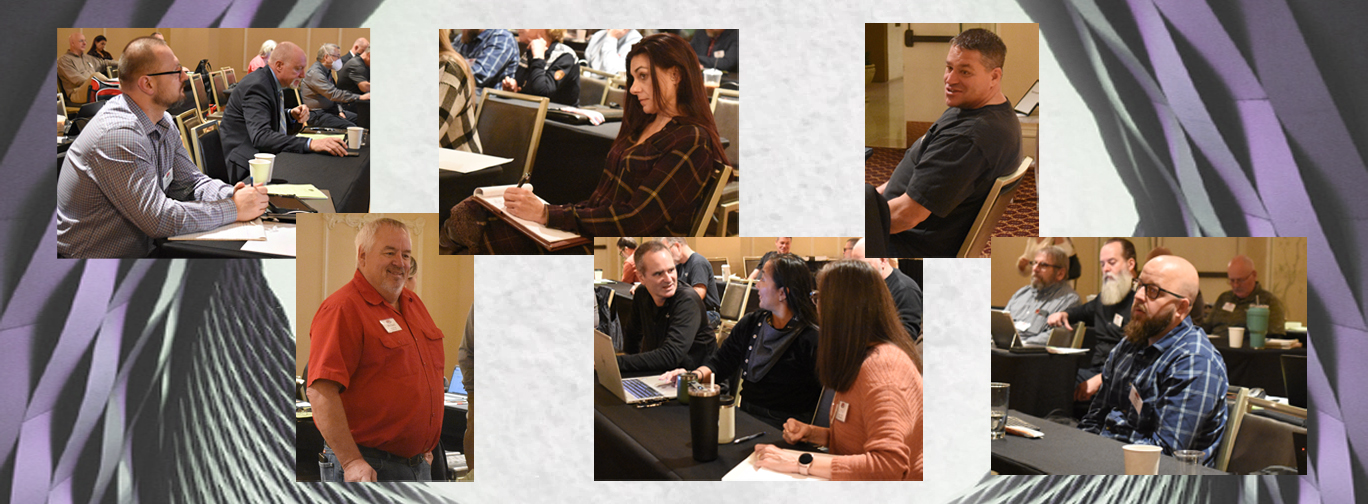
TCD Scholarship Reports
2022 Group B Public Comment Hearings - Louisville, KY
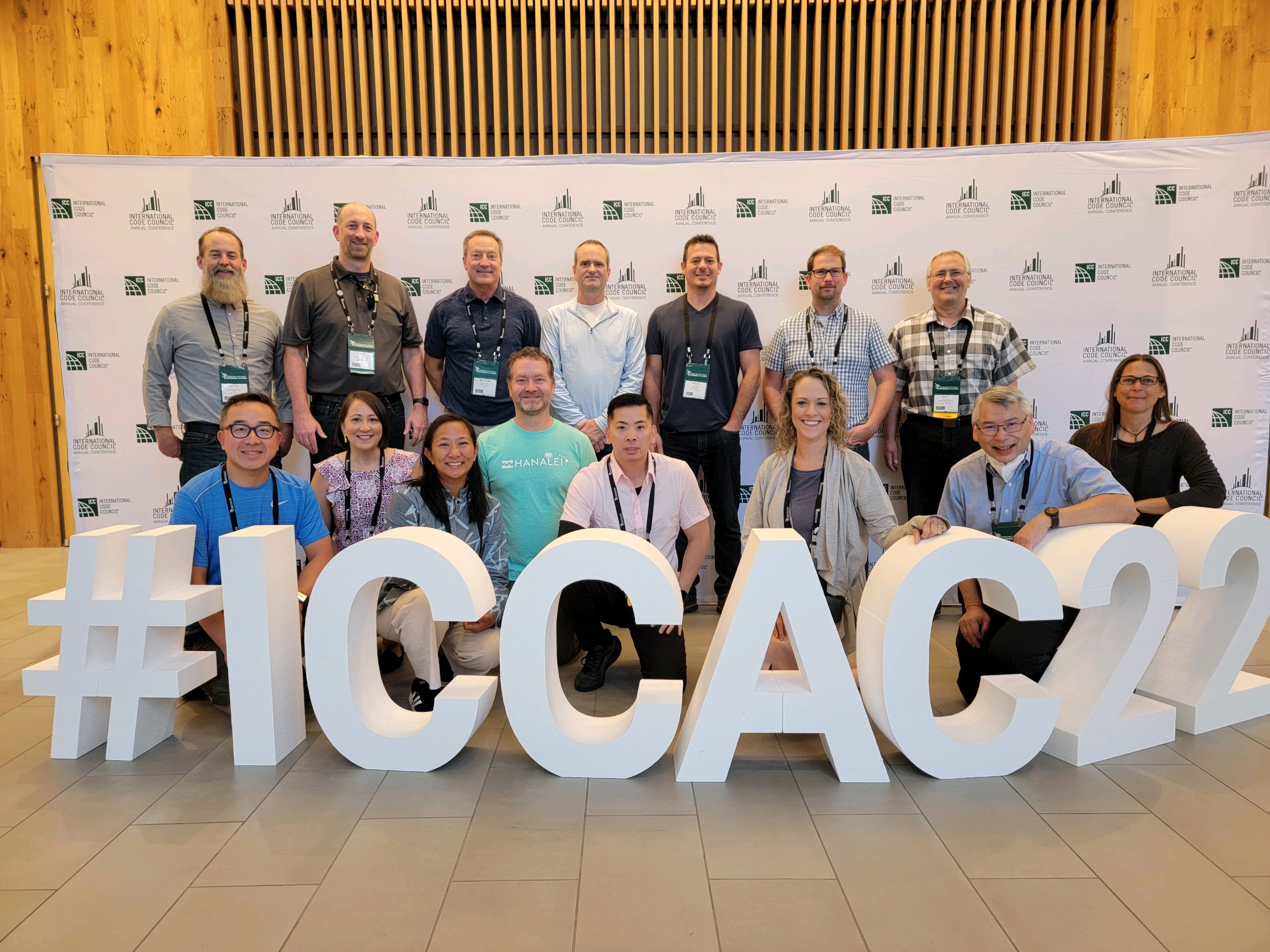
A few WABO TCD Members on the last day of the 2022 Public Comment Hearings!
Shane Nilles, CBO - City of Cheney
Feeling that bourbon burn. Louisville, Kentucky is a beautiful city surrounded by history that you can read about on almost every street corner, and of course it’s also known for its bourbon. Much like the process needed to make bourbon, the hearings also follow a specific process that while intended to produce a desired product, often leaves you in a state of dissolution and that inevitable burn.
The first burn came during a change of hearing order. This is when a request is made to move a proposal backwards in hearing order, sometimes due to when the proponent will be available to testify, other times because it is one that is likely to take a lot of time, or in some cases it’s simply a strategy to get a proposal passed. The proposals RB61, RB62, and RB63 all involved the same sections of code, and achieved some similar goals. The proponent of RB63 felt that their proposal was the best, and feared that if RB61 or RB62 were to pass first, then it would make it much more difficult to pass RB63. Being the proponent of RB62, I was also concerned that holding my position in line would be critical in getting my proposal passed. As anticipated, the proponent of RB63 requested RB61 and RB62 to be moved after RB63. As the proponent of RB62 all I needed to do was object to the move and it would be denied. I objected but the moderator did not presume that I was the proponent as is typical with prior objections, so instead of being denied it went to a vote. The vote upheld the move request. I checked with ICC staff and was told that because I did not verbalize that I was the proponent then the action was correct and I could not raise a point of order after the fact. Consequently, RB63 was heard first and was passed, and then RB62 failed despite there being no opposing testimony, leaving me to believe it was simply due to the perceived conflict between the two.
The second burn came at the end of my attendance, RB254. The proposal was to “clean up some language” regarding terminology used to describe roofs and roof sheathing. While I did not have a particular interest in the intended goals of the proposal itself, I did find an unintended consequence where the height of parapets for townhouses was accidentally being changed to be measured from the roof deck, rather than the roof surface. To correct the issue, I had a PC ready to make the language to be consistent with the current code. The proposal had been passed by the committee with a modification so there was no need to overturn the committee to hear the PC, just make the motion. So I made the motion, argued for the PC, and was able to get the support of the voters to accept the PC. Success right? I shouldn’t have counted my eggs before they hatched because there was other PCs to ask for the proposal to be the As Submitted version (the version prior to the modification that the Committee had voted for). So with those arguments, the vote to approve as modified along with my PC failed as it was just short of the required 2/3 vote. With that failure it was moved to pass the As Submitted version which did succeed in getting the required votes, making my PC fail as well despite the fact that my PC’s language could have applied to either the As Submitted and Modified versions. So after checking with staff I was told that I would have needed to move the PC a 2ⁿᵈ time, after the As Submitted motion was made in order to re-attach my PC to the final vote. Staff further admitted that such a move would have likely confused the voters and my motion would have failed anyways. So in other words I needed to predict prior to moving my PC that the modified version would have failed, and then waited for the As Submitted PC to be moved before moving my PC to be successful, a prediction that I could not have feasibly made.
Like a large swig of bourbon, it burned to have the process defeat my efforts not just once, but twice. But like the decision to tip the glass to drink, I recognize that I am ultimately responsible for the lack of judgement, or ill-preparation, to know the process and anticipate the hangover that would result from the unwise actions. So I left the hearings with a bit of a headache, a reminder of the burn, but there was plenty of fun in-between, and if I know myself I am all but certain that the hangover will be long forgotten by the next hearings and I’ll tip the glass again.
Hoyt D Jeter, PE - Clarity Consulting & City of Tacoma
I would like to say the best way to understand the building codes is to attend the public hearings. During my career in code review I have always wondered how all these changes come about every three years. You get to hear both sides of code changes and understand why changes may be required. During this public hearing it was noted that WABO is a powerful force at the code hearing. We have close to, if not the most, attending members to vote in person. People from around the country came to us to try to convince us to vote for the code changes or vote against. They discussed their reason, and it influenced me to relook at my positions. I am able to ask them in person specific details that really help me understand the code better. Why do they have to change the code? Well, it becomes clear when you see the process. Many times, a purpose started many codes cycle and it takes a few cycles to get it right before it becomes prime time to get in the code. This only happens with collaboration and voting on the changes. How would you ever find out how to modify the code without hearing both sides of the argument for or against the code's purpose? I would recommend anyone who enforces or thinks the code needs to be changed to get involved and attend these hearings or at least look at the testimony from both sides.
Quyen Thai, CBO - City of Tacoma
I would like to thank you to allowing me the opportunity to participate as chair to the TCD IRC subcommittee and to represent WABO TCD at the ICC Public Action Comment Hearing in Louisville with several proposals we have in. Now, with that said, I sure was nervous in the beginning on the first testimony going up against mostly engineers against their own proposal by myself. But I did learn from that instance after pretty much making the other party quite irritated at me. I should have reached out to them prior to the hearing to iron out details that might get more clarity and resolution rather than completely putting the nail on lid to the coffin figuratively. In the later testimonies, learning from this incident, I did end up reaching out to other proponents and this worked out favorably for both parties thereby creating better working relationship between WABO and SEAC. I think this kind of relationship works best in both creating opportunities for networking and better code language for all of us in general.
I have noticed that many of the speakers are usually the same ones at each hearing (whether they are committee hearings or public hearings). This can be a good thing or bad thing. The bad thing is that they tend to get probably heard more than the new folks having garnered years or decades or experience
and respect from the general membership. The bad is that some of the newer folks may not be “heard” as well as compared to the veteran speakers. The good though is that they also know what they’re doing which helps speeds up the process more. It is also quite entertaining listening to them at times since they have a comradery between them that only through years of debating one another can create. All in all, I would continue to attend these hearings moving forward to try and give back to the industry that I’m a part of. I have been trying to nurture other younger employees at Tacoma and my local ICC chapter to attend as well if they could.
Stacy Criswell, CBO, ACO - City of Monroe
When I look back on my career in building code enforcement over the last 20 years, there are so many changes. Early on, all I knew was every three years new codes would be printed and we would have to learn them and work with our contractors and designers to implement them. It wasn’t until I got involved with WABO’s Technical Code Development Committee (TCD) that I started to figure out the process. What I found out, is this involves a lot of work and coordination to stay on top of all the proposed changes and how one code section change can affect other sections across multiple books. Keep in mind that we are voting on changes that are two code cycles ahead of what we are currently enforcing.
While this process is overwhelming to think about sometimes, the efforts of our WABO TCD committee are second to none. We have a great team of volunteers from across the state and even in Oregon who want to ensure we are keeping up with technology changes in our industry, revised engineering practices and safer building designs. When WABO shows up and testifies on something like did in Louisville Kentucky, our peers across the country listen and take notice. So if you want to get involved and learn more about the code change process, please get in touch with myself or one of our other members. You will not be disappointed.
C. Ray Allshouse, AIA, CBO, ACO - City of Shoreline
This round, I was able to attend the first two days of the Group B Public Comment Hearings (PCH) in Louisville, KY. I truly appreciated WABO providing me the opportunity for listening to testimony on proposed changes for the 2024 ICC model codes under the ADMIN, IEBC and a portion of IEBC-Structural segments. Although I was unable to provide any direct testimony, I consulted and influenced colleagues from other parts of the country regarding their testimony while in attendance. I also appreciated being a part of shaping the agenda for the Online Governmental Consensus Vote, which can only be done through participation in the actual PCH. It was again pleasing to be a part of a formidable Washington contingent, helping to maintain a credible contribution to code development efforts at the national level by WABO representatives. I also continue to believe that this is a wise use of WABO financial resources as it keeps the WABO “brand” in the forefront of the construction industry while also helping to improve the model codes over time. I hope that we can influence even more WABO colleagues to participate in this effort in the years ahead.
Angela Haupt, CBO - City of Kirkland
I recently attended my 5th ICC Public Comment Hearings and Annual Business Meeting in Louisville, KY. The attendance still seemed a bit lower than pre-Covid hearings, but better than last year. WABO didn’t have a large amount of items that we proposed but we had a good number that were on our watch list.
In addition to the ABM, I was able to attend all days of the hearing. As usual there were a wide variety code proposals, but none that seemed to monopolize too much time. Once again, the WABO/Seattle group made an impressive showing of numbers. WABO TCD had a good success rate for WABO proposals, Seattle proposals and other items that we felt warranted our attention. I did not have the opportunity to testify, but look forward to doing it again at the hearings in 2024. The hearings are a unique way to stay in touch with the codes. I look forward to continued participation with the TCD at both the State and national level. Thank you for the opportunity to participate in this process.
Ted Corey - City of Monroe
The Louisville code hearings were the first code hearings I’ve attended. Having participated in WABO TCD leading up to the hearings, I thought I had an idea of what to expect. It became clear early on that my expectations differed from the reality of the hearings. Immediately noticeable was the pace at which the hearings were conducted. The moderator and those giving testimony were all ready to go and for the most part conducted themselves in a manner that kept a fast pace for the entirety of the hearings. The amount of testimony given on some topics was not what I was expecting either, think back to all the solar folks lined up, 20+ people.
The code development process was most highlight for me through testimony from those on the side of industry and from those on the enforcement side of the code. In an ideal state, code is developed in a collaborative but pragmatic manner with safety given a priority and effective compromises being reached between enforcement and industry through the support or disapproval of committee decisions utilizing the public comment system. One of the best examples of public comments being used to better the committee’s recommendations and highlight industry and enforcement cooperation was RB150-22, which dealt with elevated PV structures as roofs, both sides were seemingly able to come to an agreement through public comments, while neither side seemed to get entirely what they wanted a reasonable compromise appears to have been agreed upon which reveals the at times contentious, but overall collaborative nature of the code hearings.
Back in the world of enforcement I’ve already found the experience of the code hearings and overall code development shaping the way some conversations about the code occur. A good example would be discussions centered around blocking for rail posts and how those codes are going to be worded and why certain systems (trusses) aren’t specifically mentioned but are meant to be included in the code. Without having been present for the testimony around RB173 I wouldn’t have that background knowledge that sheds light on why the code will read a certain way.
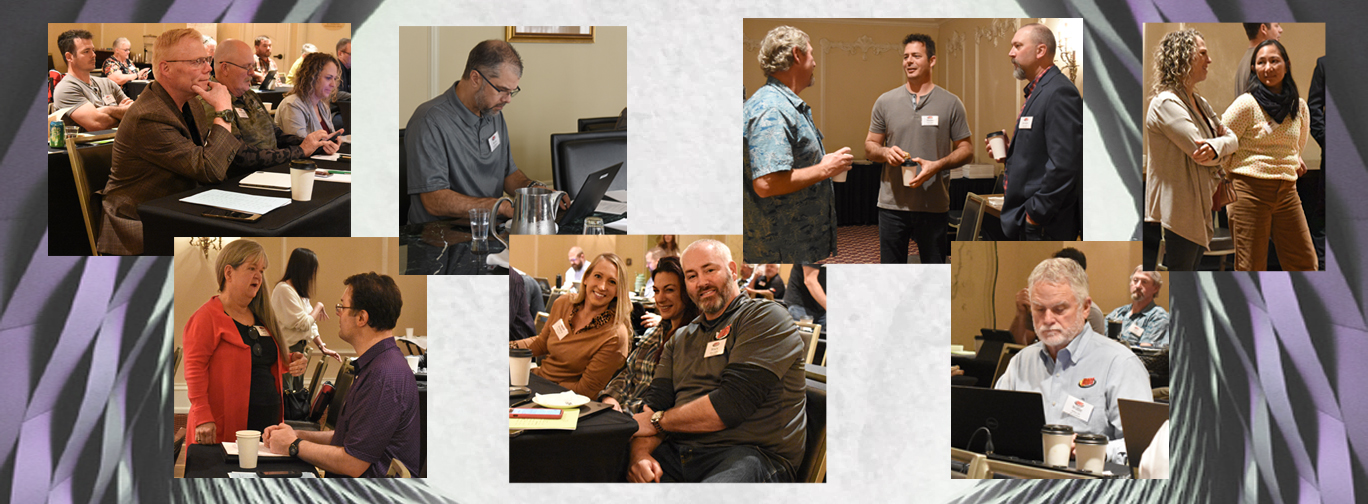
|